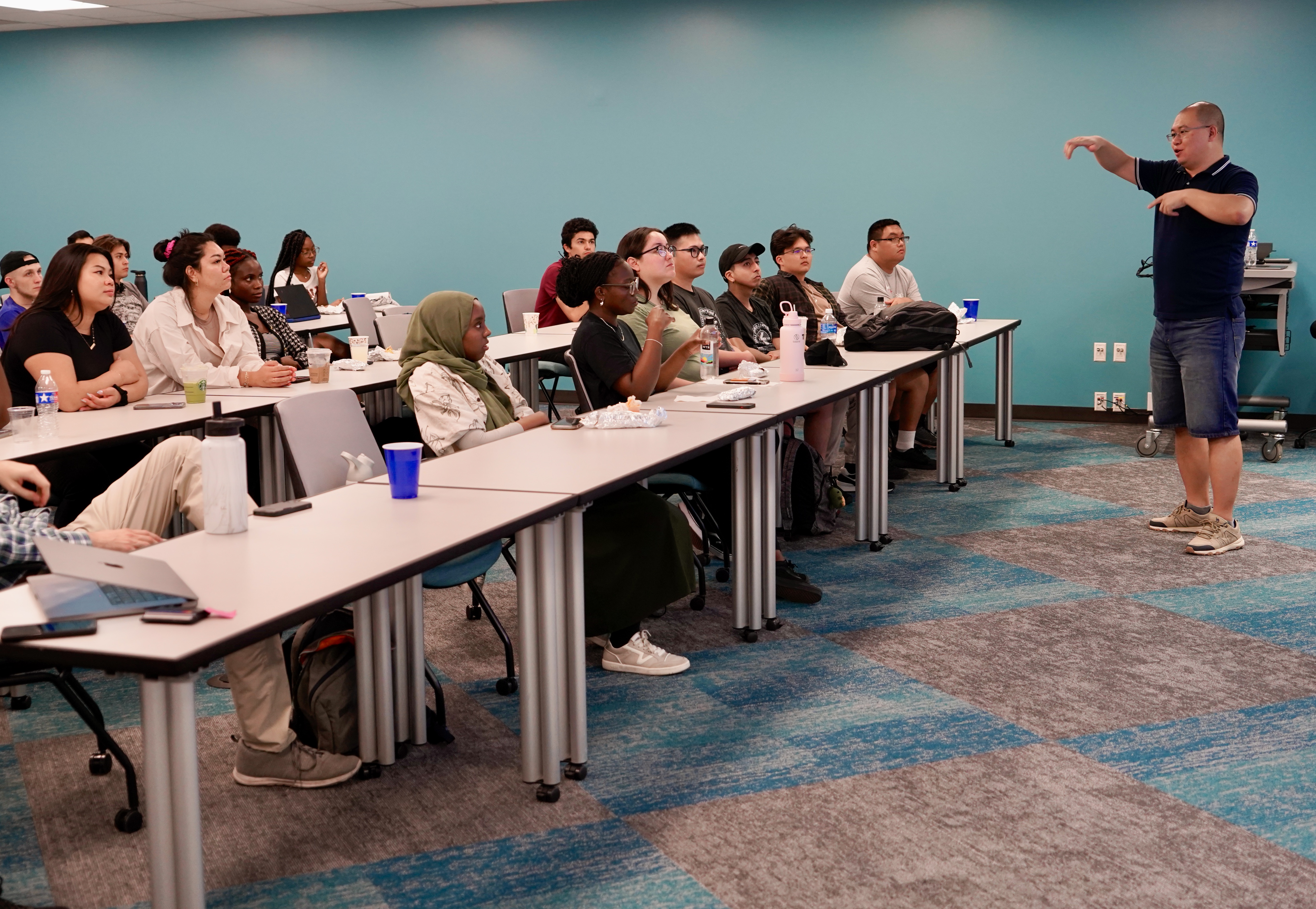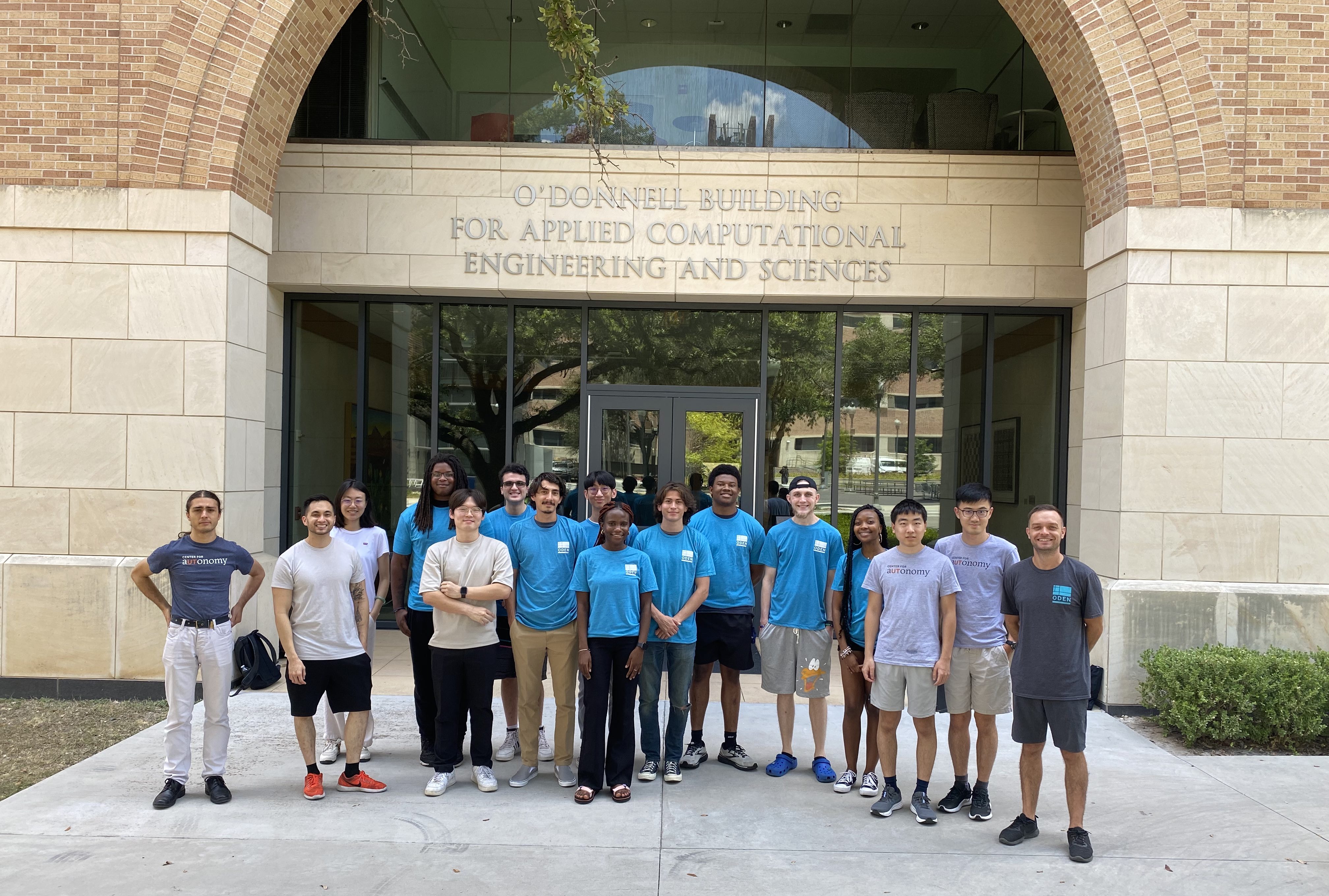Diverse Exploration Across Research Projects
Engaging in REU projects, participants delved into various aspects of autonomous systems:
Guided by Po-han Li, Dorothy Mberile and Noah Reboul enhanced real-time computer vision models, perfecting image classification, object detection, and segmentation. Armed with Python coding skills, they honed model selection based on computing constraints.
“The time spent with my graduate mentor gave me a glimpse into grad school and his guidance with my research helped me narrow down potential areas of interest that I may want to further pursue,” enthused Noah. “It was a great opportunity.”
Under Jean-Raphaël Gaglione's mentorship, Matthew Chamberlain aimed to bridge logic and language, translating intricate temporal logic formulas into English sentences through human-designed rules and AI integration.
Yunhao Yang led Andrew Zhuang and David Flores in exploring secure multi-party computation techniques, preserving user data privacy while maintaining classification accuracy in machine learning models.
Cevahir Koprulu and Xindi Gong guided Anthony Gillespie in delving into curriculum design's impact on reinforcement learning agents. They experimented with various approaches, offering insightful visualizations of learning trajectories and agent performance.
Xindi emphasized her passion for acting as a mentor to undergraduates in her field, mentioning that she “works closely with her mentee to define research objectives and bigger picture goals,” while acting as a guide and support through the “exciting but sometimes challenging journey of research”.
Mentored by Jake Levy, Gregory Brown addressed challenges in GPS-denied environments, devising algorithms for autonomous robotic navigation using LiDAR readings, crucial for scenarios like search and rescue missions.
Jihoon Suh directed Ian Cornwell and Alayasia Thomas in refining multi-agent motion planning. Their focus was on advancing algorithms for real-world scenarios, using Crazyflie quadcopters as the platform.
Jihoon highlighted the joy of teamwork and hands-on learning, saying, “I was lucky to have two students assigned to me, because I could distribute different roles based on their skills and experience. I call them my battle buddies,” he joked. “Since our project involved many hands-on experiences, I feel that I could quickly identify any problems that they were struggling with and help them get back on track.”
Culmination and Celebration
As weeks progressed, participants' passion for autonomy research ignited, culminating in final presentations showcasing their progress.
In the days before the event, affiliated faculty member David Fridovich-Keil shared, "I have been very excited to see our lab’s REU students engage with the work we do in robot navigation. I’m looking forward to seeing what all of our REU students have been working on in the upcoming presentation expo!”
After the students’ successful presentations, an ice cream social celebrated new friendships and shared accomplishments, marking the program's peak.
“Many of the things I taught the students were new to them,” reflected Jihoon. “It reminds me of my past self when I knew nothing, and everything looked cool, and anything seemed possible. In a way, they’ve helped me revive my passion for research in this field.”
Anthony Gillespie will look back on his time conducting research at the Oden Institute as “a fun and enriching experience.” Highlighting the joint benefits of community building and developing career-specific expertise, he said, “I enjoyed my time with my peers and mentors. I also got the chance to sharpen some of my technical skills, which is a nice bonus."
As the adventure drew to a close on August 12th, participants departed armed with knowledge, camaraderie, and magnified zeal for autonomous systems research.
“REACT allowed us to spend invaluable time with experienced and knowledgeable individuals who we otherwise wouldn’t have had such easy access to,” said Noah Reboul. “I would recommend this program to any student interested in research and grad school.”
By matching theoretical exploration with practical application, the Center for Autonomy’s REACT REU propels students toward careers driven by excellence and boundless curiosity.

